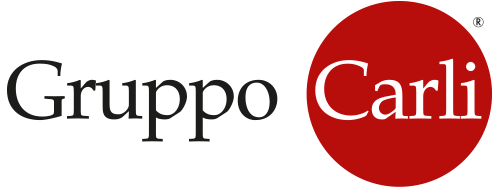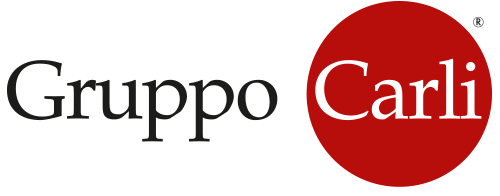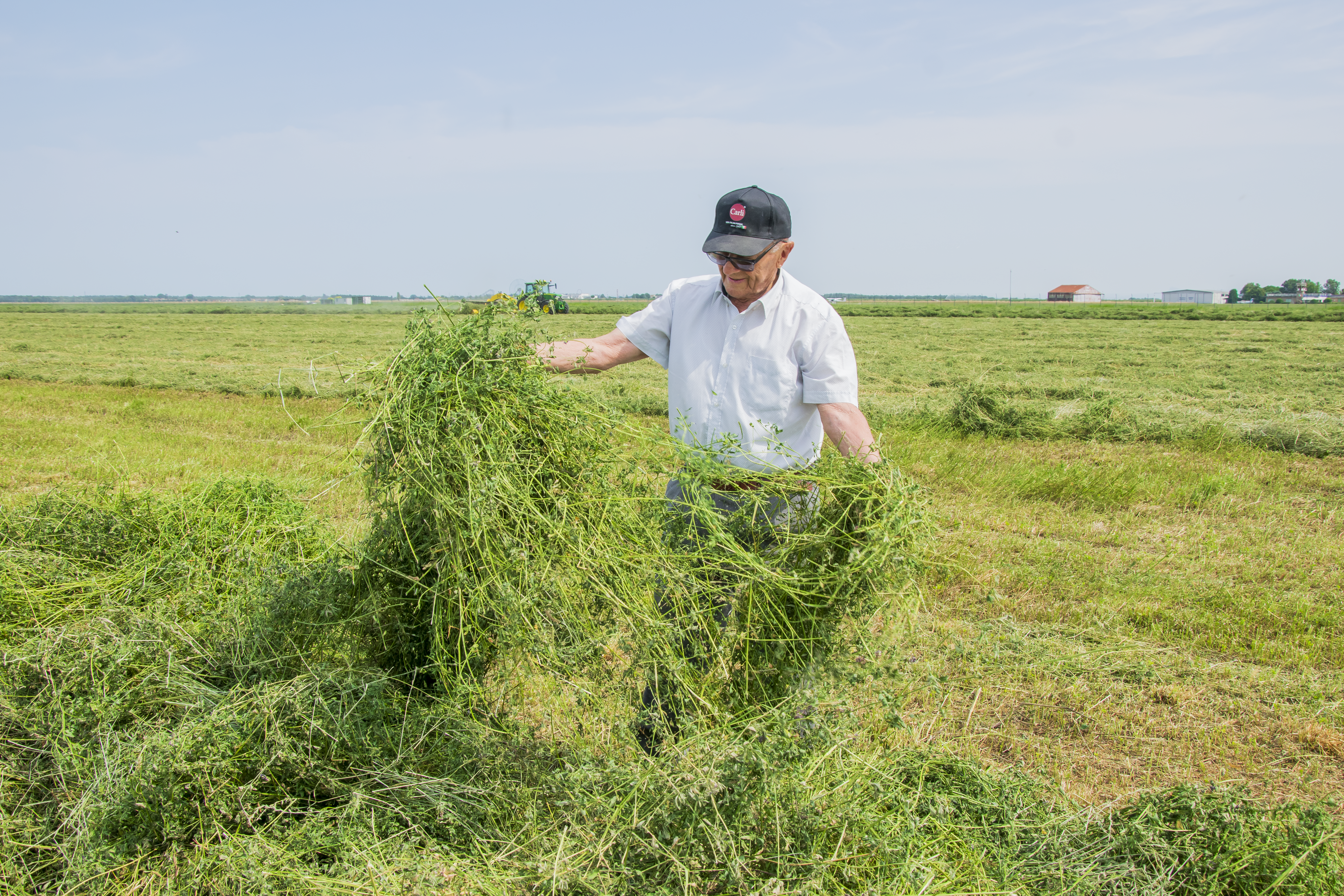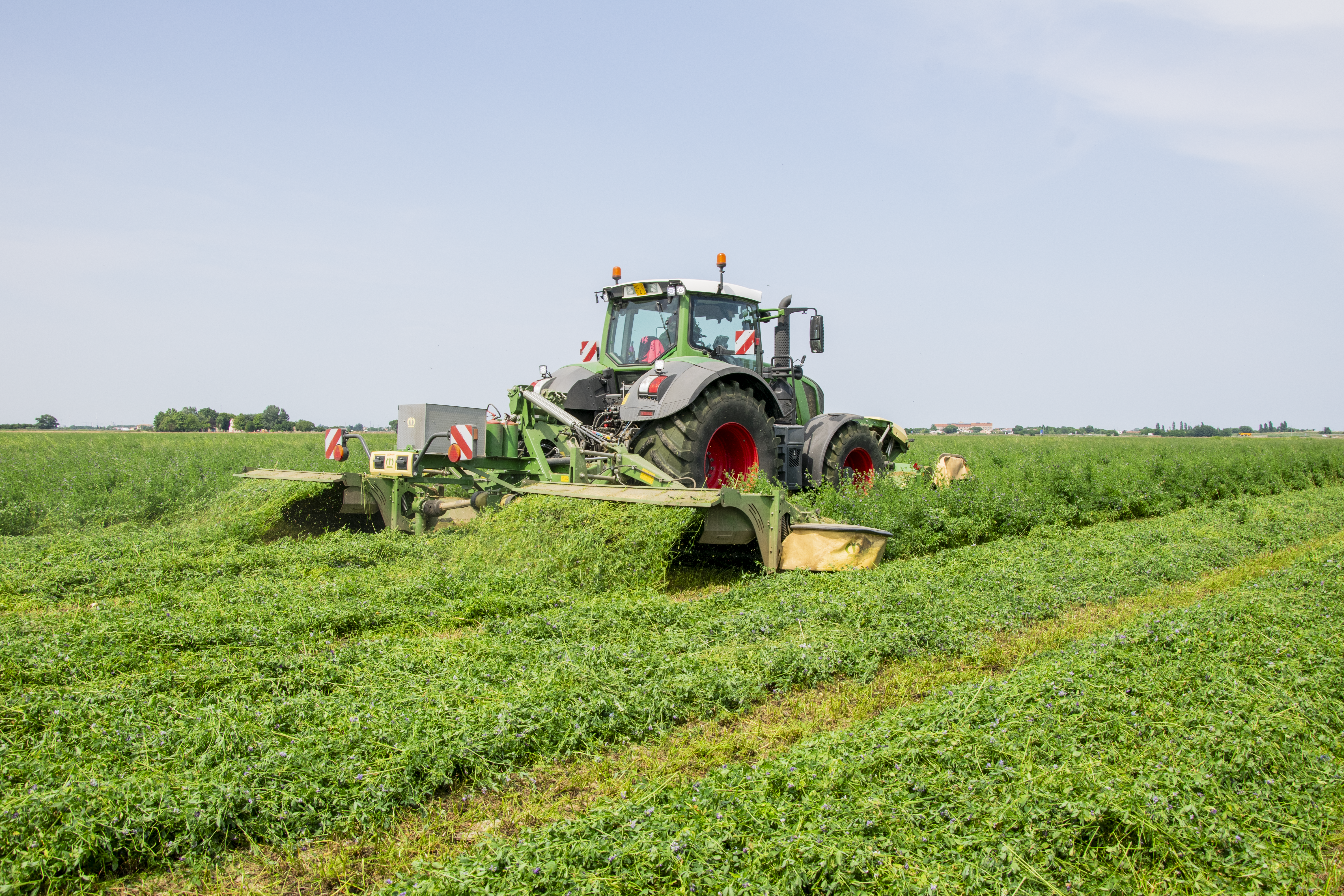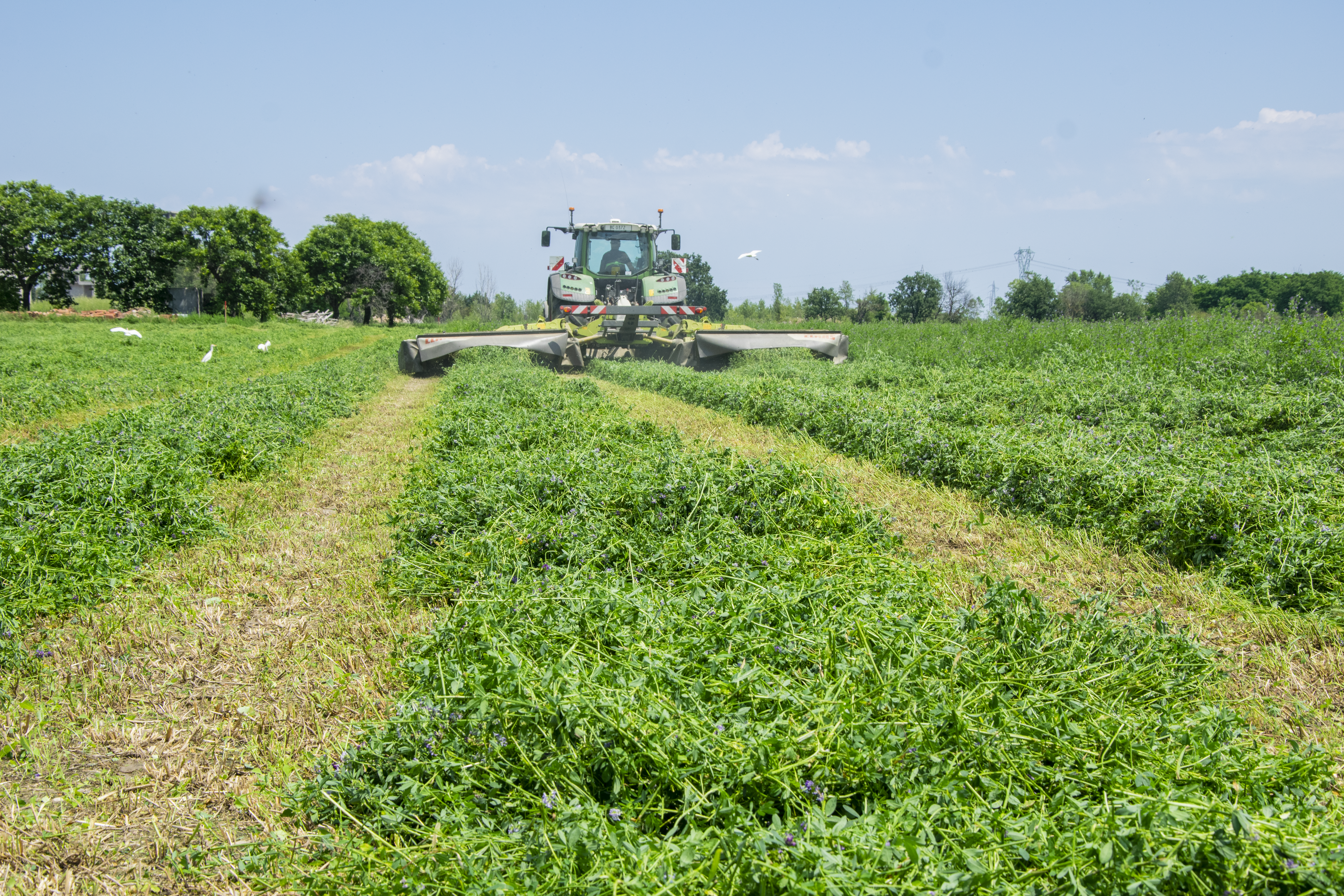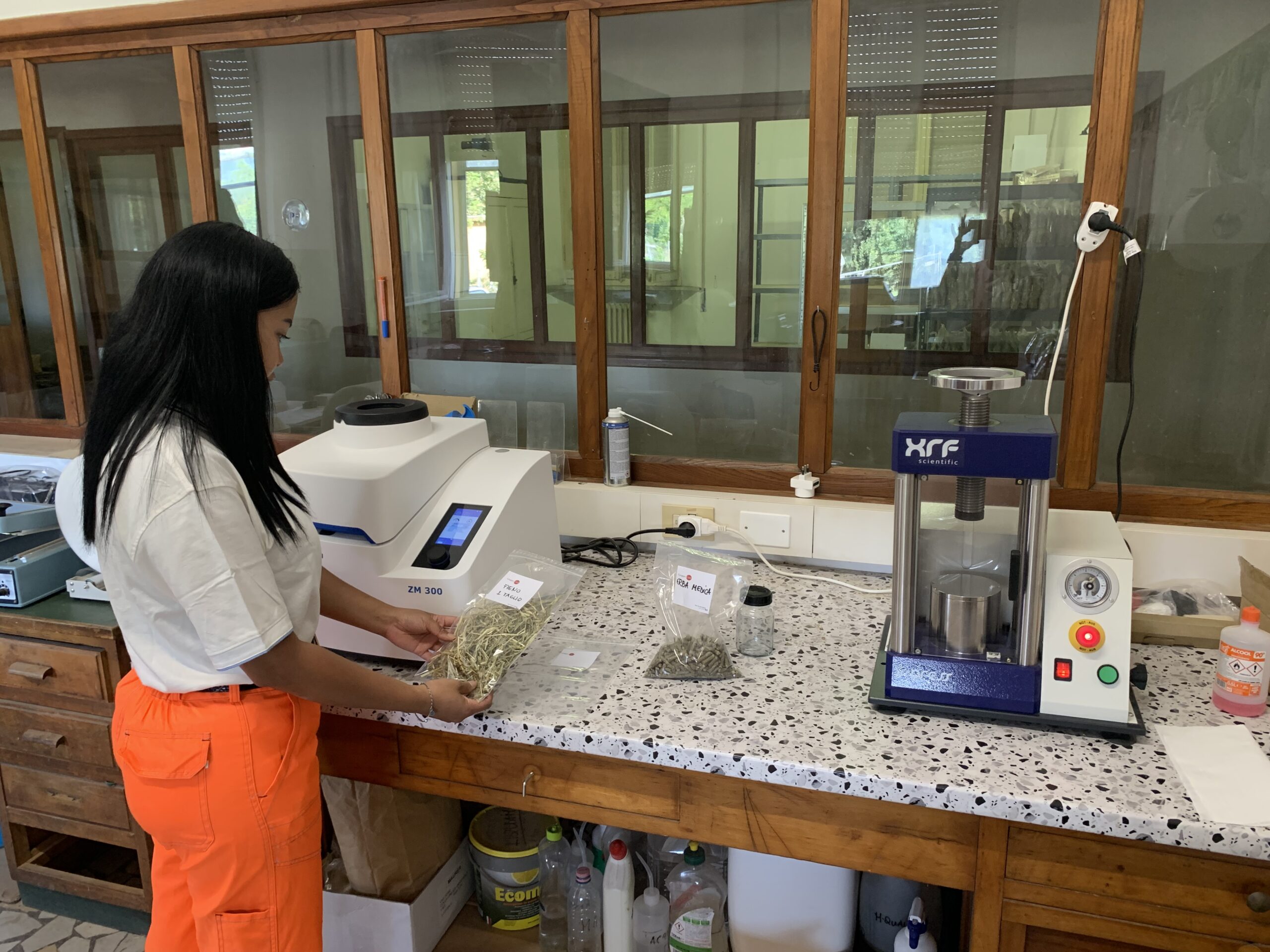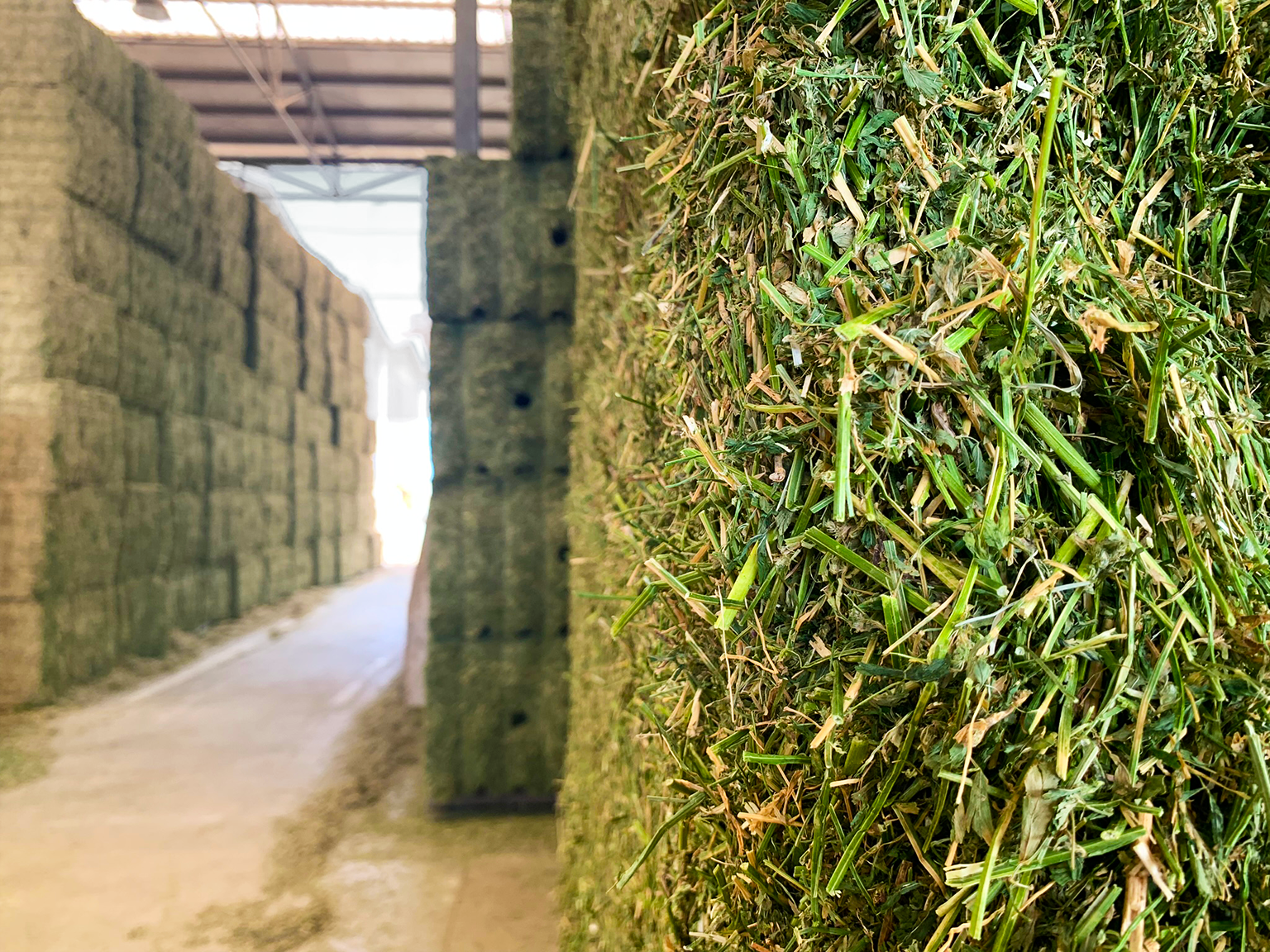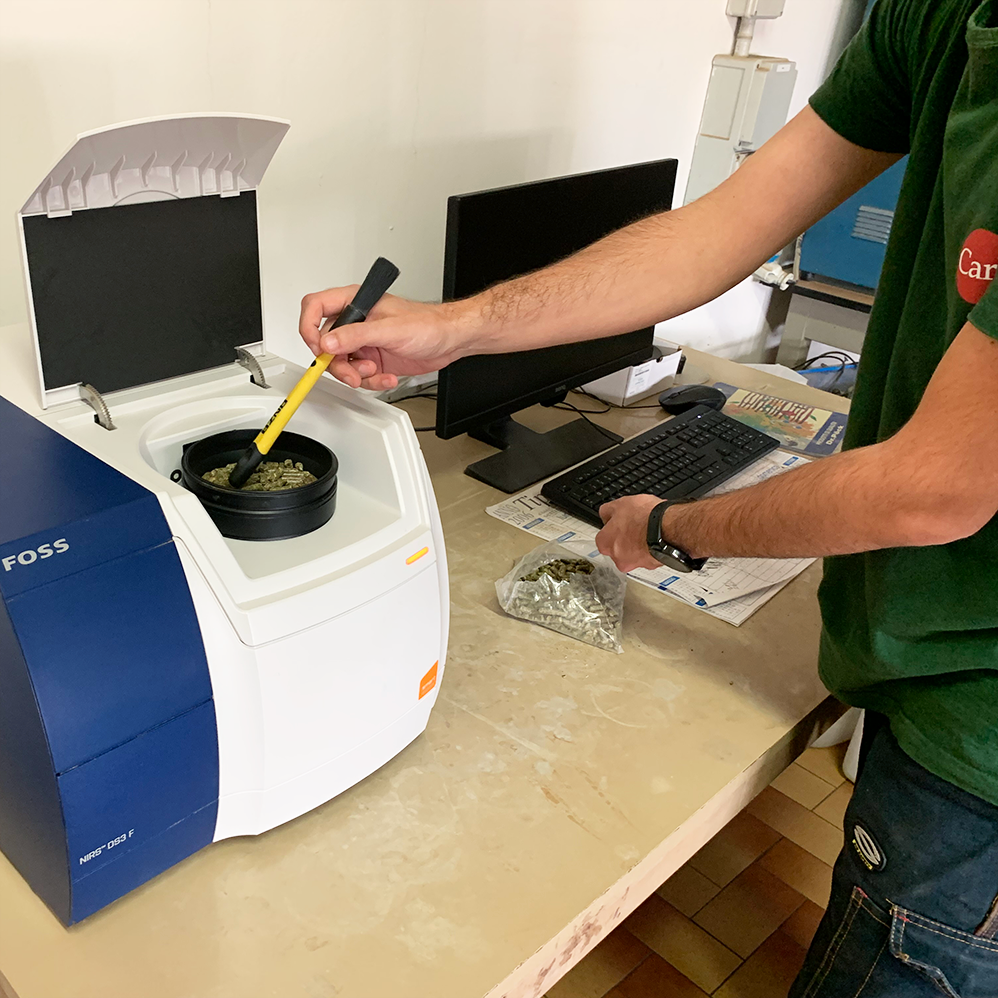PRODUCTION PROCESS
At Gruppo Carli, we work hard every day to optimize our production process in order to obtain reliable high-quality animal fodder that can give farmers a competitive advantage.
This daily challenge involves every stage of our production, in which we have been working tirelessly since 1960.
1
Sowing
Depending on the crop to be grown, sowing is carried out in spring or autumn, with seed produced or selected directly by Gruppo Carli. Gruppo Carli forage crops and cereals are grown solely in Italian fields using environment-friendly agricultural practices, without chemical fertilizers or irrigation with groundwater.
3
Processing
Gruppo Carli forages can be sun-dried or dehydrated. The first stage of processing is chopping, which gives the stems the optimal length for direct use in the feed trough, thus removing the need for the mixer-wagon. This is followed by the dehydration process: the chopped alfalfa passes through a rotating oven which, by means of hot air flows, eliminates most of the moisture present. The stabilization of moisture interrupts the process of fermentation, maintaining optimal nutrient levels and long storage times. The 5 Carli Group processing plants are equipped with airshot systems for the removal of plastics, magnets to extract metals, and sieves and separators to remove stones and soil. Sanitized and safe forage, 100% usable and without waste, emerges from the Gruppo Carli production lines.
5
Packaging and storage
Once processed, the fodder is pressed and packaged in large or small rectangular bales, or pelletized and packaged in paper sacks or raffia big bags. The finished products are stored in covered and ventilated warehouses, which guarantee optimal conservation and protection from light and from external contaminants.The production process of dehydrated alfalfa is highly specialized: it combines the agronomic aspect, relating to field management, with technology, since it requires the expert and rigorous use of dedicated systems and machinery.
At Gruppo Carli, all processing and storage phases are carried out in line with precise procedures, established as a result of risk analysis within the company’s HACCP system and its traceability.
To guarantee the healthiness of its fodder, Carli Group applies the food safety standards stipulated in the Manual of Good Hygienic Practices for the alfalfa and dried fodder sector prepared by the sector association AIFE, pursuant to article 22 of Reg. (EC) 183/2005 and article 9 of Reg. (EC) 852/2004.
